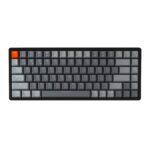In Elden Ring, Dexterity is a key stat that shapes your character’s combat style. It affects how well you handle quick weapons and influences your casting speed. Dexterity boosts damage for certain weapons and improves your ability to stay on horseback.
Players who focus on Dexterity often prefer fast-paced combat. They use weapons like daggers, katanas, and bows. These tools need skill and speed to use well. Dexterity also helps reduce fall damage and makes it harder for enemies to knock you off your horse.
Dexterity-based weapons can deal high damage when upgraded. They allow for swift attacks and combos. This stat is vital for players who want to be agile fighters or skilled archers in the game’s harsh world.
Dexterity in Elden Ring: The Art of Finesse and Speed
Dexterity is a key attribute in Elden Ring, favored by those who prefer agility, speed, and finesse in combat. It governs the effectiveness of a wide range of weapons and influences certain aspects of spellcasting.
What Does Dexterity Do?
- Weapon Scaling: Dexterity is the primary attribute for scaling damage with many weapons, including katanas, daggers, curved swords, whips, and bows. The higher your Dexterity, the more damage these weapons inflict.
- Casting Speed: Dexterity subtly increases the casting speed of sorceries and incantations. This means you can cast spells slightly faster, giving you an edge in combat.
- Status Effect Buildup: Some weapons and spells that inflict status effects, such as bleed or poison, scale with Dexterity. This enhances the rate at which you apply these debilitating effects.
- Improved Defense: Dexterity also slightly increases your fire resistance.
How to Increase Dexterity
You can increase your Dexterity attribute by spending Runes at any Site of Grace. Leveling up Dexterity will:
- Increase the damage of Dexterity-scaling weapons.
- Slightly improve casting speed.
- Enhance the buildup of certain status effects.
- Slightly boost your fire resistance.
Best Starting Classes for Dexterity Builds
- Samurai: Starts with the highest Dexterity, making it ideal for katana-focused builds.
- Warrior: Offers a balance of Dexterity and Strength, allowing for a hybrid build that combines agility with heavier weapons.
Important Dexterity-Related Items
- Dexterity-Scaling Weapons: Explore the wide variety of Dexterity weapons, such as the Uchigatana, Moonveil katana, and Reduvia dagger, to find your perfect fit.
- Ashes of War: Certain Ashes of War enhance Dexterity scaling or add unique skills to your weapons.
- Talismans: Some talismans, like the Rotten Winged Sword Insignia, boost attack power with successive attacks, benefiting fast-hitting Dexterity weapons.
Popular Dexterity Builds
- Dex/Int Hybrid: Combines Dexterity weapons with sorceries for a versatile playstyle.
- Bleed Build: Utilizes Dexterity weapons that inflict bleed buildup, like the Rivers of Blood katana, for high damage output.
- Bow Build: Focuses on ranged combat with bows, utilizing Dexterity for increased damage and arrow speed.
Understanding Weapon Scaling in Elden Ring
Weapon scaling is a crucial mechanic that determines how much damage a weapon deals based on your attribute levels.
Scaling Grades
Weapons have scaling grades for different attributes, ranging from E (lowest) to S (highest). A weapon with an “A” scaling in Dexterity will significantly benefit from high Dexterity.
How Scaling Works
When you level up an attribute, the damage of weapons that scale with that attribute will increase. The higher the scaling grade, the greater the damage increase.
Choosing Weapons Based on Scaling
It’s important to choose weapons that scale well with your chosen attributes. If you’re building a Dexterity character, prioritize weapons with high Dexterity scaling.
Key Takeaways
- Dexterity improves damage with fast weapons and affects casting speed
- It helps with horse riding and reduces fall damage
- High Dexterity suits players who prefer quick, agile combat styles
Understanding Dexterity in Elden Ring
Dexterity is a rewarding attribute for players who value agility, speed, and precision in Elden Ring. Whether you prefer the swift strikes of katanas, the deadly precision of daggers, or the ranged power of bows, Dexterity offers a diverse and engaging playstyle. By understanding how Dexterity scaling works, selecting the right weapons and equipment, and mastering the art of dodging and weaving, you can become a formidable warrior in the Lands Between.
Dexterity is a key stat in Elden Ring. It affects how well you use certain weapons and spells. Players who focus on dexterity can become quick and deadly fighters.
Dexterity Attribute Mechanics
Dexterity is one of the main attributes in Elden Ring. It helps players wield special weapons. These include katanas and bows.
Dexterity has soft caps at 20 40 and 55. A soft cap means you get less benefit after reaching that level. The hard cap is 80.
Weapons have a scaling grade for dexterity. This grade shows how much the weapon’s damage grows with your dexterity stat. Grades range from E (lowest) to S (highest).
Players can make weapons “Keen” with Ashes of War. This improves their dexterity scaling.
Impact of Dexterity on Combat
Dexterity boosts damage for fast light weapons. It also makes spell casting quicker. This helps both melee fighters and magic users.
High dexterity lets players use advanced weapons. It also improves their skill with bows and throwing knives.
Dexterity helps with parrying. This is a move that blocks attacks and opens foes to counters. The Parrying Dagger is great for this.
A dexterity build focuses on quick attacks and dodges. It’s good for players who like to strike fast and avoid big hits.
Leveling dexterity improves your attack power with certain weapons. It’s key for players who want to deal lots of damage quickly.
Dexterity-Based Equipment and Skills
Dexterity plays a key role in many weapons and builds in Elden Ring. It affects damage output and skill effectiveness for certain gear types.
Weapons That Benefit from Dexterity
Dexterity weapons include katanas daggers spears and claws. These scale well with the Dex stat. Popular choices are:
• Uchigatana
• Rivers of Blood
• Moonveil
• Hand of Malenia
Katanas stand out for their bleeding effects. Daggers excel at critical hits. Spears offer reach and speed.
Weapon scaling ranges from E (lowest) to S (highest). Higher scaling means more damage as you level Dex. The Keen affinity boosts Dex scaling on weapons.
Optimizing Dexterity Builds
A Dex build focuses on fast precise attacks. Aim for at least 40 Dexterity. Put leftover points in Vigor Endurance or Mind.
Good armor choices are light to medium weight. This allows for quick dodging. The Ash of War “Quickstep” pairs well with Dex builds.
Quality builds mix Strength and Dexterity. They can use a wider range of weapons. But pure Dex builds often deal more damage with Dex weapons.
Leveling Dexterity also speeds up spell casting. This benefits hybrid caster builds.
Frequently Asked Questions
Dexterity plays a crucial role in Elden Ring. It affects weapon damage, casting speed, and character builds. Let’s explore some common questions about this important attribute.
What are the benefits of investing in Dexterity in Elden Ring?
Investing in Dexterity boosts damage for certain weapons. It also makes you better at using bows and other ranged weapons. Higher Dexterity can even speed up spell casting.
Dexterity-based weapons like daggers and katanas become more powerful. Players can deal more damage to enemies with these weapons. This stat also helps with fall damage reduction.
How does Dexterity influence weapon performance in Elden Ring?
Dexterity affects how much damage Dexterity-scaling weapons do. These weapons include rapiers, curved swords, and some spears. As Dexterity increases, so does the damage output of these weapons.
It also impacts attack speed for some weapons. Higher Dexterity can lead to faster strikes. This helps players hit enemies more often and avoid their attacks.
Does a higher Dexterity attribute affect casting speed for certain spells in Elden Ring?
Yes, Dexterity does affect casting speed for spells. Higher Dexterity lets players cast spells faster. This is true for both sorceries and incantations.
Faster casting can be a big advantage in battle. It allows players to unleash spells quickly and avoid enemy attacks. However, the effect is not huge until very high Dexterity levels.
What is the maximum effective level for Dexterity in Elden Ring?
The maximum level for any stat in Elden Ring is 99. But the effective cap for Dexterity is often lower. Most weapons stop scaling well after 80 Dexterity.
Going beyond 80 Dexterity gives very small returns. Players usually focus on other stats after reaching this point. It’s rare to need more than 80 Dexterity for any build.
How does Dexterity compare to Strength in terms of character builds in Elden Ring?
Dexterity and Strength are both important for melee builds. Dexterity favors quick, light weapons. Strength is better for heavy, slow weapons.
Dexterity builds often focus on speed and critical hits. Strength builds tend to rely on raw power and staggering enemies. Some weapons scale with both stats, allowing for hybrid builds.
Are there specific weapons in Elden Ring that scale primarily with Dexterity?
Yes, many weapons in Elden Ring scale mainly with Dexterity. Katanas, rapiers, and curved swords are common examples. Bows and some spears also benefit greatly from Dexterity.
Dexterity-scaling weapons are often faster and use less stamina. They’re great for players who prefer quick attacks and dodging. Some popular Dexterity weapons include the Uchigatana and Moonveil Katana.







